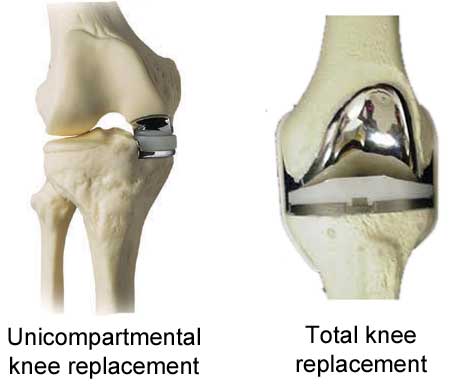A PARTIAL KNEE REPLACEMENT or UNICONDYLAR or UNICOMPARTMENTAL KNEE REPLACEMENT is an alternative to total knee replacement for patients with osteoarthritis of the knee. This surgery can be done when the damage is confined to a particular compartment of the knee.
The indications for partial knee replacement(arthroplasty) are pretty similar to the ones for a Total Knee Replacement.
If the patient has the following symptoms that are nor relieved by medicines or physiotherapy then they should consider undergoing a knee replacement. (partial or total)
- Pain in and around the knee, mainly on weight-bearing, climbing stairs, squatting.
- Difficulty in walking or standing for a reasonable amount of time (30minutes)
- Night pain
- Stiffness in and around the knee after rest
Not all patients of arthritis are suitable for Partial knee replacement. Patients with conditions like rheumatoid arthritis, ankylosing spondylitis or who have significant deformity are not suitable candidates for this procedure. However, between 40-50 percent of patients who have Osteoarthritis are suitable for partial knee replacement surgery.

| AT 10 YEARS | UKA | TKR |
|---|---|---|
| INFECTION | 0.3% | 1.5% |
| DVT(THROMBOSIS) | 0.04% | 0.6% |
| LOOSENING | 0.4% | 1.2% |
| REVISION | 1.2% | 5% |
| SATISFACTION | 95% | 70-80% |
However, partial knee arthroplasty, being a minimally invasive surgery, requires a much higher degree of surgical expertise as compared to total knee replacement. The procedure is surgeon dependent and hence the success rate is much higher with surgeons who regularly perform this procedure. At Ashutosh hospital, we have been regularly performing partial knee replacement surgery and the outcomes have been very gratifying for all our patients.
If you have been advised to undergo total knee replacement surgery, do enquire about the possibility of Partial knee replacement so that you can get a knee joint that is as close to your native knee as possible.





